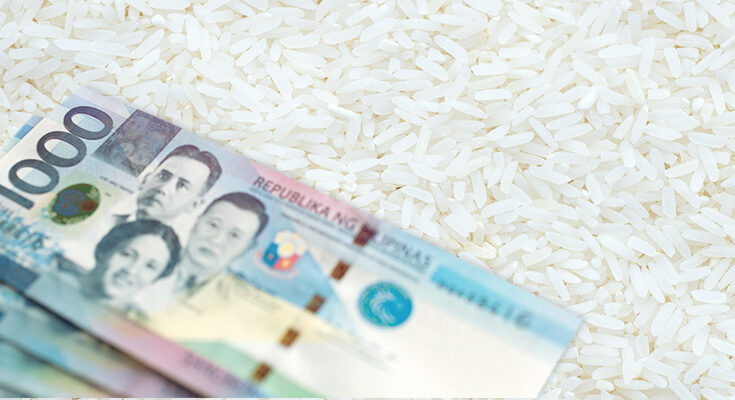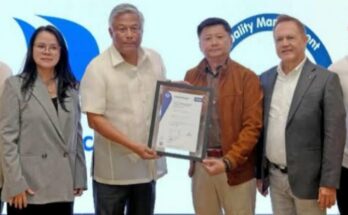THE retail prices of rice are expected to decline by as much as PHP5 to PHP7 at the onset of 2025 with the anticipated signing of amendments to the Rice Tariffication Law (RTL) by President Ferdinand R. Marcos Jr., a lawmaker said on Thursday.
Camarines Sur Rep. Luis Raymund Villafuerte Jr. said the proposed amendments to Republic Act 11203 would help alleviate inflationary pressures and make the staple more affordable to Filipino families.
Congress has ratified the amendatory law to RTL before the October recess, which seeks to allow the government to intervene during price surges by importing rice and selling it at reduced prices through Kadiwa stores.
Villafuerte noted that the retail cost of rice has begun to soften since the President issued Executive Order (EO) 62 in June, which cut the import tariff on rice from 35 percent to 15 percent.
“With rice accounting for a sizable share of the food expenses of Filipinos, most especially of poor or low-income families, the President’s issuance of EO 62 that slashed the rice import tariff and his expected signing soon of the Congress-ratified proposed amendatory law to RA 11203 that empowers the government to better intervene in the market during abnormal price spikes, will make the staple more affordable and accessible for our consumers – and help take the edge off sticky inflation,” he said.
Citing Agriculture Assistant Secretary Arnel De Mesa, Villafuerte said rice prices are seen to fall to less than PHP40 per kg. in the months ahead in light of the government’s intervention programs.
“And once the proposed amendments to RTL are signed into law by the President, rice prices are likely to go down even further, possibly by as low as PHP5 to PHP7 per kilo by January next year, as projected by Agriculture Secretary Kiko (Francisco Tiu Laurel Jr.),” he said.
Villafuerte also pointed out that the September slowdown in inflation, the lowest in four years at 3.3 percent, was driven primarily by lower rice prices.
The slower inflation rate of rice was recorded at 5.7 percent in September, compared to 14.7 percent in August.
Villafuerte said the proposed amendments include extending the Rice Competitiveness Enhancement Fund (RCEF) by six years, as well as increasing its budget from PHP10 billion to PHP30 billion annually.
He said this additional funding would support efforts to boost rice productivity and help Filipino farmers improve their incomes.
Of the proposed increase in budget, PHP9 billion is earmarked for rice machinery, PHP6 billion for palay seed development, and PHP15 billion for projects aimed at enhancing productivity and food security and addressing supply shortages.
He also backed House of Representatives Speaker Martin Romualdez’s proposal to expand access to affordable rice by increasing the number of Kadiwa centers across the country, which offer rice at lower prices.
“As aptly pointed out by Speaker Martin, the stepped-up efforts by the President to boost palay productivity and sell cheaper rice through Kadiwa outlets not only provide immediate relief to Filipino families but also enable the government to put inflation in check and help ensure food security,” he said. (PNA)





